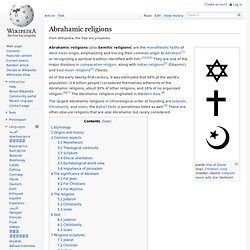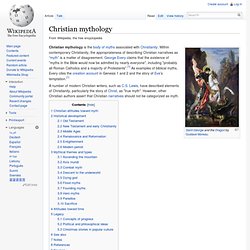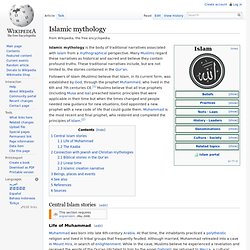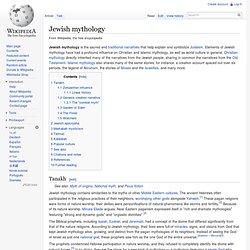

Abrahamic religions. Abrahamic religions (also Semitic religions) are the monotheistic faiths of West Asian origin, emphasizing and tracing their common origin to Abraham[1] or recognizing a spiritual tradition identified with him.[2][3][4] They are one of the major divisions in comparative religion, along with Indian religions[5] (Dharmic) and East Asian religions[5] (Taoist).

As of the early twenty-first century[update], it was estimated that 54% of the world's population (3.8 billion people) considered themselves adherents of the Abrahamic religions, about 30% of other religions, and 16% of no organized religion.[6][7] The Abrahamic religions originated in Western Asia.[8] The largest Abrahamic religions in chronological order of founding are Judaism, Christianity, and Islam; the Bahá'í Faith is sometimes listed as well.[9] There are other obscure religions that are also Abrahamic but rarely considered.
Etymology[edit] Major religious groups as a percentage of world population. Origins and history[edit] Christian mythology. Christian mythology is the body of myths associated with Christianity.

Within contemporary Christianity, the appropriateness of describing Christian narratives as “myth” is a matter of disagreement. George Every claims that the existence of "myths in the Bible would now be admitted by nearly everyone", including "probably all Roman Catholics and a majority of Protestants".[1] As examples of biblical myths, Every cites the creation account in Genesis 1 and 2 and the story of Eve's temptation.[1] A number of modern Christian writers, such as C.S. Lewis, have described elements of Christianity, particularly the story of Christ, as "true myth". However, other Christian authors assert that Christian narratives should not be categorized as myth. Christian attitudes toward myth[edit] In ancient Greek, muthos, from which the English word "myth" derives, meant "story, narrative. " Historical development[edit] Old Testament[edit] According to scholars including Neil Forsyth and John L.
Dying god[edit] Islamic mythology. Islamic mythology is the body of traditional narratives associated with Islam from a mythographical perspective.

Many Muslims regard these narratives as historical and sacred and believe they contain profound truths. These traditional narratives include, but are not limited to, the stories contained in the Qur'an. Followers of Islam (Muslims) believe that Islam, in its current form, was established by God, through the prophet Muhammed, who lived in the 6th and 7th centuries CE.[1] Muslims believe that all true prophets (including Musa and Isa) preached Islamic principles that were applicable in their time but when the times changed and people needed new guidance for new situations, God appointed a new prophet with a new code of life that could guide them.
Muhammad is the most recent and final prophet, who restored and completed the principles of Islam.[2] Central Islam stories[edit] Life of Muhammad[edit] The Kaaba[edit] Connection with Jewish and Christian mythologies[edit] See also[edit] Jewish mythology. Jewish mythology is the sacred and traditional narratives that help explain and symbolize Judaism.

Elements of Jewish mythology have had a profound influence on Christian and Islamic mythology, as well as world culture in general. Christian mythology directly inherited many of the narratives from the Jewish people, sharing in common the narratives from the Old Testament. Islamic mythology also shares many of the same stories; for instance, a creation account spaced out over six periods, the legend of Abraham, the stories of Moses and the Israelites, and many more. Tanakh[edit] Jewish mythology contains similarities to the myths of other Middle Eastern cultures. The Biblical prophets, including Isaiah, Ezekiel, and Jeremiah, had a concept of the divine that differed significantly from that of the nature religions.
"the sun, moon, stars, sky and earth are not gods in their own right, hostile to Yahweh. Zoroastrian influence[edit] R. Linear history[edit] Genesis creation narrative[edit]